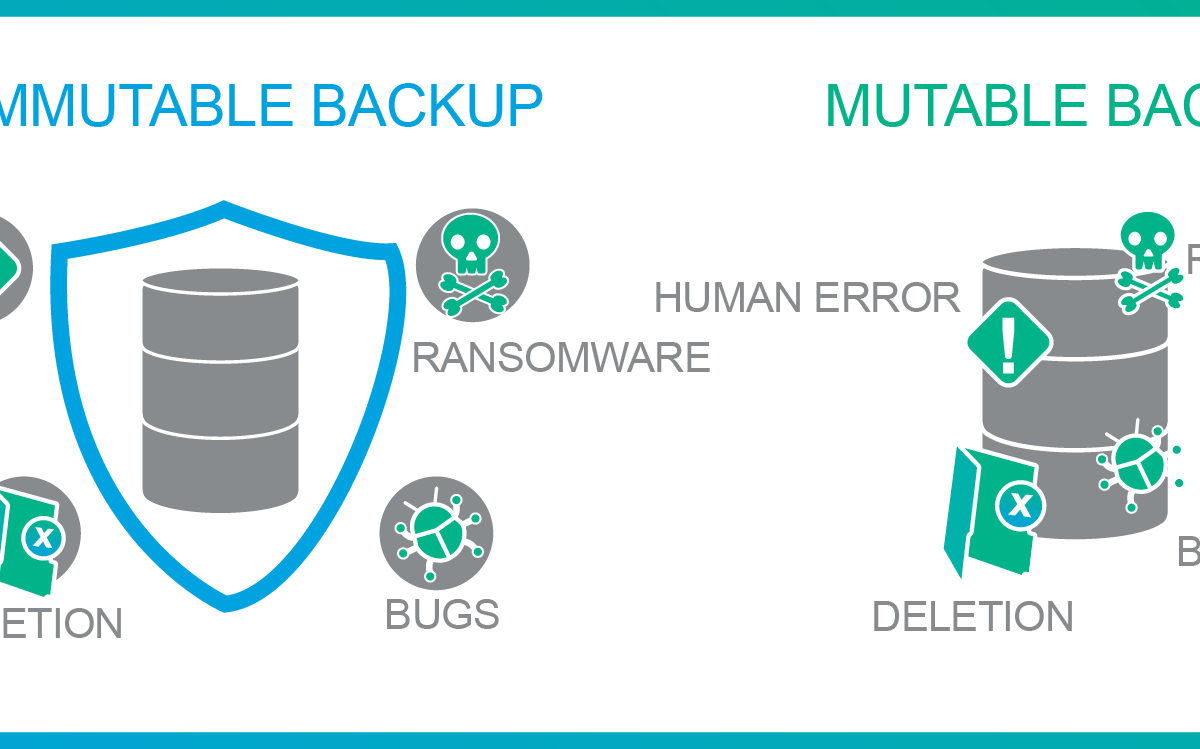In today’s fast-paced digital landscape, data is the lifeblood of businesses. From financial records and customer information to intellectual property and operational data, companies rely heavily on their digital assets. With the ever-increasing frequency and sophistication of cyber threats and the potential for accidental data loss, having a robust backup strategy is essential for any organisation.
One innovative approach to data backup that has gained traction but is still far from the industry standard is “Immutable Data Backup.” Immutable data backups offer a level of data protection that goes beyond traditional backup methods, providing an added layer of security against ransomware attacks, human errors, and data corruption. While very few companies currently offer this service due to the associated infrastructure and costs, some forward-thinking organisations are breaking new ground.
One such company is DSM Group, which has made it their mission to prioritise data security and offer immutable data backup as a standard service. Their investment in cutting-edge infrastructure, including a solar farm and a water-cooled data centre, has allowed them to provide this game-changing service to their clients without breaking the bank.
Understanding Immutable Data Backup
Before delving into the benefits of immutable data backup, it’s essential to understand what it entails. Immutable data backup refers to a backup method where once data is stored, it cannot be altered, overwritten, or deleted until a predefined retention period expires. In other words, it guarantees the immutability and integrity of your backup data, making it impervious to external threats or accidental data modifications.
The Advantages of Immutable Data Backup
- Ransomware Resilience: Ransomware attacks have become increasingly prevalent and sophisticated. Attackers often target backups, rendering them useless and leaving victims with no option but to pay a ransom. Immutable data backups are immune to such attacks, as the data remains unalterable, regardless of external interference.
- Data Integrity: In a world where data integrity is paramount, immutable backups provide assurance that your data will remain unchanged, ensuring its accuracy and reliability for compliance and auditing purposes.
- Protection Against Human Errors: Accidental data deletion or modification is a common cause of data loss. Immutable backups safeguard against these mistakes, guaranteeing the ability to restore your data to its original state.
- Historical Data Retrieval: Immutable backups preserve historical versions of data, enabling organisations to recover files or records from any point in time. This can be invaluable for investigating incidents or tracking changes over time.
- Peace of Mind: Knowing that your critical data is secure and immutable can offer peace of mind to business owners and IT professionals, allowing them to focus on strategic initiatives rather than worrying about data loss.
The Slight Space Requirement and Cost
One consideration to keep in mind when adopting immutable data backup
is that it typically requires approximately 20% more storage space compared to traditional backup methods. While this might lead to concerns about increased costs, it’s essential to emphasise that the additional storage cost is minimal when weighed against the substantial benefits of data security and protection against potential data breaches or loss.
The investment in the extra storage space for immutable backups is a proactive measure that ensures the integrity and availability of your critical data. In the grand scheme of data security, this added expense is a small price to pay for the peace of mind and resilience it offers against cyber threats and data disasters.
Overcoming the Cost and Infrastructure Challenge
The primary reason many companies have yet to adopt immutable data backup as a standard service is the perceived cost and infrastructure required. However, forward-thinking organisations like DSM Group have found innovative solutions to overcome these challenges.
By investing in renewable energy sources, such as a solar farm, and developing an efficient water-cooled data centre, DSM Group has managed to significantly reduce operational costs. These investments not only make their data centre environmentally friendly but also allow them to pass on cost savings to their clients, making immutable data backup an affordable option.
Making Immutable Data Backup Accessible to All
The move toward offering immutable data backup as a standard service is a significant step in enhancing data security for businesses of all sizes. While the infrastructure and costs may have been barriers in the past, companies like DSM Group are demonstrating that it’s possible to overcome these challenges.
In an era when data breaches and cyber threats are a constant concern, investing in immutable data backup is a proactive approach that can protect your organisation’s most valuable asset: its data. As more companies recognise the importance of this service, it may become an industry standard, ensuring that businesses are better equipped to safeguard their digital assets in an increasingly volatile digital landscape.
In conclusion, immutable data backup is a game-changer in data security, and DSM Group is leading the way by making it accessible and affordable to their clients. As businesses continue to prioritise data protection, immutable backups may soon become the gold standard for safeguarding critical digital assets. The minimal cost of additional storage space pales in comparison to the invaluable protection it provides for your data.



